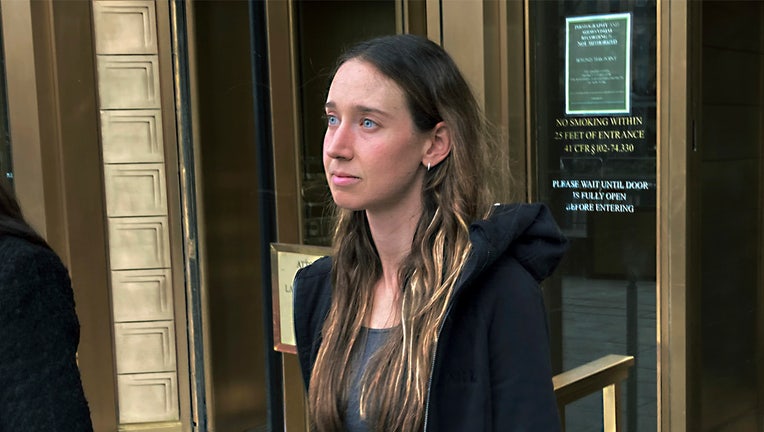Frank founder Charlie Javice arrested in New Jersey on fraud charges

NEW YORK - The founder of Frank, a student loan assistance startup company that J.P. Morgan Chase acquired for $175 million two years ago, was arrested on charges that she duped the financial giant by dramatically inflating the number of customers her company had, authorities said.
Charlie Javice, 31, of Miami Beach, Florida, was arrested Monday night in New Jersey on conspiracy, wire and bank fraud charges.
A charging document in Manhattan federal court said she claimed her company had over four million users when it had fewer than 300,000 customers.
Authorities said Javice, who appeared on the Forbes 2019 "30 Under 30" list, would have earned $45 million from the fraud.
Javice and her lawyer declined to comment as they left court after Javice signed a $2 million bond and agreed to curfew and possible electronic monitoring if court officers decide it is necessary.
She also agreed not to contact key figures in the case — including investors — except for her mother and her mother's boyfriend.
In a release, U.S. Attorney Damian Williams said Javice "engaged in a brazen scheme" to defraud the acquiring financial company by fabricating data to support lies she told in a bid to make tens of millions of dollars from the sale of her company.
"This arrest should warn entrepreneurs who lie to advance their businesses that their lies will catch up to them," he said.
According to a criminal complaint, Javice in 2017 founded TAPD Inc., which operated under the name Frank, to provide an online platform to simplify the process of filling out the Free Application for Federal Student Aid, a free federal government form used by students to apply for financial aid for college or graduate school.
In 2021, Javice sought to sell her company in her role as its chief executive to a large financial institution, the complaint said.
When JPMC sought to verify that her company had 4.25 million customers, Javice asked her company's director of engineering to create an artificially generated data set, but the individual declined, it said.
She then hired an outside data scientist to create the synthetic data set as she purchased for $105,000 on the open market real information for over 4.25 million students, the complaint said. But it added that the data she purchased did not contain all of the information she had told JPMC was maintained by Frank.
In a civil complaint filed by the Securities and Exchange Commission, the regulatory agency alleged that Javice made numerous misrepresentations about Frank's alleged millions of users to entice JPMC to purchase the now shuttered Frank.
Gurbir S. Grewal, director of the SEC’s Division of Enforcement, said in a release that "even non-public, early-stage companies must be truthful in their representations."
He added: "Rather than help students, we allege that Ms. Javice engaged in an old school fraud: she lied about Frank’s success in helping millions of students navigate the college financial aid process by making up data to support her claims, and then used that fake information to induce JPMC to enter into a $175 million transaction."
LARRY NEUMEISTER, with the Associated Press, helped contribute to this report.

